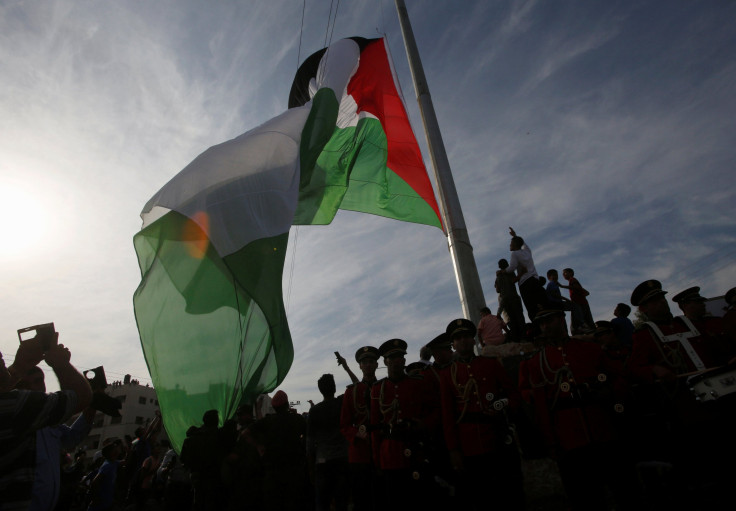Israel Palestine Conflict: West Bank And Gaza Strip Economic Trouble Could Cause Social Unrest

The Palestinian Authority's failing economy has left Israel concerned about potential political and social unrest in the West Bank and Gaza, the Wall Street Journal reported Wednesday.
The Palestinian Authority has received over $23 billion in international assistance since its foundation in 1994 following the signing of the Oslo Accords, making Palestinians one of the world's largest receivers per capita of international development aid. Much of this money comes from Gulf nations such as Saudi Arabia, Qatar and the United Arab Emirates. The amounts have declined in recent years, however, causing economic woes for Palestine.
Saudi Arabia, the Palestinian Authority's most committed donor, has begun focusing on military efforts in Syria, Iraq and Yemen. Qatar and the United Arab Emirates stopped giving altogether in 2015. The Palestinian economy, beset by Israeli occupation, relies on these funds to survive. A report issued by the World Bank in September details the crisis Palestinians face.
“The Palestinian economic outlook is worrying with serious consequences on income, opportunity, and well-being. Not only will it affect the Palestinian Authority’s capacity to deliver services to its citizens, it may also lead to wider economic problems and instability,” the report quoted Marina Wes, Country Director for West Bank and Gaza, as saying.
"Israeli restrictions remain the main constraint to Palestinian economic competitiveness and have pushed private investment levels to amongst the lowest in the world," the report added.
Israel collects tax money on goods and services that enter Palestine and collects money for work benefits from Israeli businesses that hire Palestinians. Israel then transfers these funds to the Palestinian Authority in large, single payments after collecting a fee. Tel Aviv also generates revenue for the Palestinian Authority by issuing work permits for Palestinians to work in Israel.
The Palestinian Authority's budget, a third of which goes to the Hamas-controlled Gaza Strip, continues to face a $500 million shortfall. The dire situation has forced Palestinian Authority President Mahmoud Abbas to cut wages, jobs and welfare in an already stagnant economic period. Israelis fear that financial grievance could lead to instability.
“A stable Palestinian Authority economy is in Israel’s interests economically, politically, and in terms of security,” Finance Minister Moshe Kahlon said September at the signing of a deal that restructured a massive debt owed by the Palestinian Authority to the state-run Israel Electric Corporation.
Palestinian political infighting has exacerbated the issue. Palestine's two largest political parties, Fatah and Hamas, have continually failed to reach a substantial power-sharing agreement since a schism in 2007. Abbas, a member of Fatah, reportedly cut Wednesday the salaries of over 50 Palestinian Authority employees within his party who supported political rival Muhammed Dahlan. Dahlan and his followers are threatening to protest an upcoming party conference, attacking Abbas' legitimacy as president.
© Copyright IBTimes 2024. All rights reserved.












